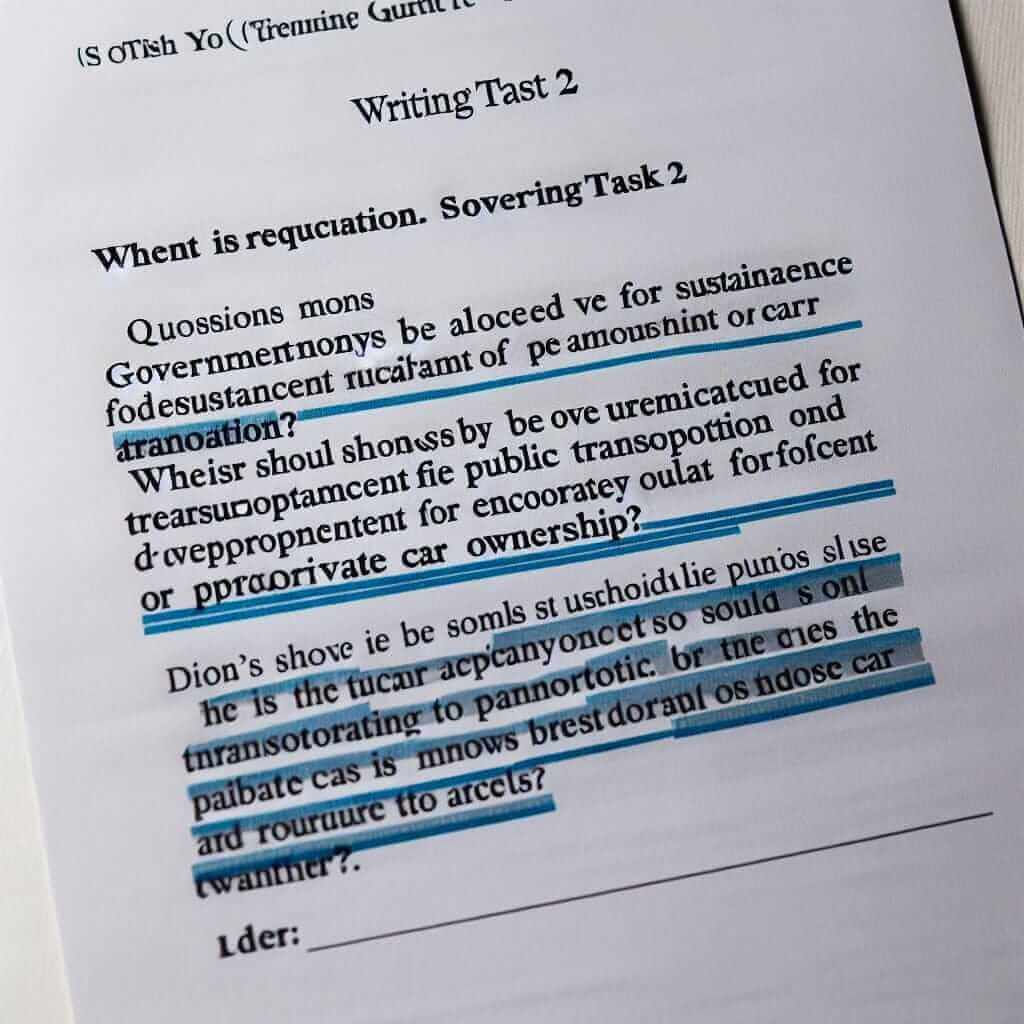Many aspiring IELTS test-takers ponder this question: “Do I really need to study for IELTS?” As an IELTS instructor with over two decades of experience, I’m here to tell you that the answer, while seemingly straightforward, depends entirely on your individual circumstances and goals.
Understanding the Importance of IELTS Preparation
Before we delve into the “why” and “how” of IELTS preparation, let’s establish what IELTS is and why it matters. The International English Language Testing System (IELTS) is a globally recognized English proficiency test crucial for work, study, or migration purposes. It assesses your listening, reading, writing, and speaking skills in English.
To Study or Not to Study? That is the Question!
While some individuals possess a natural aptitude for languages and might feel confident walking into the IELTS exam without dedicated preparation, I strongly advise against it. Here’s why:
1. IELTS is a Standardized Test:
Like any standardized test, IELTS follows a specific format, question types, and assessment criteria. Familiarizing yourself with these is crucial for success.
2. Time Management is Key:
Each section of the IELTS exam has strict time limits. Practice allows you to hone your time management skills and avoid feeling rushed during the actual test.
3. Specific Skills are Assessed:
IELTS examines your ability to understand diverse accents (listening), comprehend complex texts (reading), write coherently and persuasively (writing), and articulate your ideas fluently (speaking). Targeted practice helps you refine these skills.
4. Confidence is Essential:
Stepping into the examination hall with prior preparation can significantly boost your confidence and reduce anxiety, allowing you to perform at your best.
Tailoring Your IELTS Preparation
The extent of preparation needed varies based on your current English proficiency level and target band score.
Beginner to Intermediate Learners:
- Focus on Building a Strong Foundation: Devote ample time to improving your overall English skills—vocabulary, grammar, pronunciation, and fluency.
- Utilize Comprehensive IELTS Preparation Materials: Coursebooks, online resources, and mobile applications offer structured learning paths and practice exercises.
- Consider Enrolling in an IELTS Preparation Course: Guided instruction from experienced teachers can provide valuable feedback and personalized strategies.
Upper-Intermediate to Advanced Learners:
- Identify Your Strengths and Weaknesses: Take practice tests under timed conditions to pinpoint areas needing improvement.
- Target Specific Skills and Question Types: Dedicate focused practice sessions to refine your techniques for different sections of the exam.
- Seek Feedback from Qualified Instructors: Have your writing and speaking assessed by experienced IELTS tutors to identify areas for enhancement.

Example: IELTS Writing Task 2
Let’s look at an example from the IELTS Writing Task 2 to illustrate the importance of preparation:
“Some people believe that the government should invest more money in public transportation, while others think that private car ownership should be encouraged. Discuss both views and give your own opinion.”
Answering this question effectively requires not only strong English language skills but also the ability to structure a coherent argument, present balanced views, and use appropriate vocabulary. Preparation will equip you with the skills and strategies to tackle such questions confidently.
Tips for Effective IELTS Preparation
- Start Early: Avoid last-minute cramming. Allow yourself ample time to prepare thoroughly.
- Set Realistic Goals: Aim for gradual improvement rather than expecting overnight miracles.
- Practice Regularly: Consistency is key. Dedicate time each day or week to IELTS preparation.
- Simulate Test Conditions: Familiarize yourself with the test environment by taking practice tests under timed conditions.
- Seek Expert Guidance: Don’t hesitate to seek help from experienced IELTS instructors for personalized feedback and strategies.
In Conclusion
While the decision of whether or not to study for IELTS ultimately rests with you, I strongly recommend investing time and effort in preparation. Remember, success in the IELTS exam is attainable with focused effort, the right strategies, and a positive mindset.